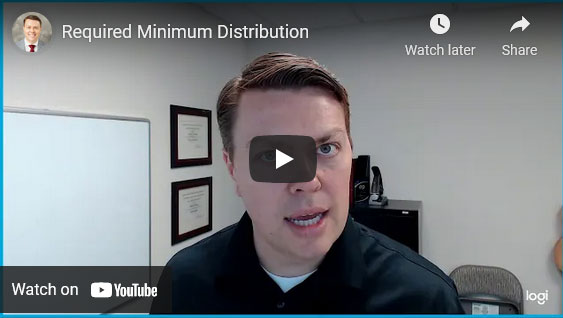
Introduction to a Retirement Trust
October 10, 2019
Required Minimum Distribution
October 10, 2019
Introduction to a Retirement Trust
October 10, 2019
Required Minimum Distribution
October 10, 2019
This time of year, around the end of October or beginning of November you may receive information from your employer about all the benefits offered by your employer. These types of benefits may include many different things from retirement accounts to health care, dental, and vision, to disability plans (long and short term). How much is paid for by your employer is different from employer to employer too. Some offer to pay full benefits and have retirement matching programs, while others may require you to pay all or a portion of the benefits. This can make planning your benefits a bit daunting.
What to Think About
Your employer may offer many different types of retirement packages: 401(k), 403(b) and 457 plans. Even within the se plans there are typically many options: pre-tax contributions, post-tax contributions, Roth plans. Again, some employers may offer benefit matching programs. Which you should pick is based on many factors: you may have investments from former employers or that you have gathered without an employers assistance, you may have real property (both a primary residence and rental properties), you may have special family needs that you must address that could affect what is the right decision for you and your family.
Healthcare benefits may go beyond just the normal healthcare or vision plan and may include Health Savings Accounts. Health savings accounts can be set aside tax free for healthcare costs, but this may not be the most effective way for your family to save money. Or this may be the perfect vehicle to save for your retirement medical expenses.
Employer provided life, disability, and accidental death may be offered by your employer as well. Whether you should participate in these programs through your paycheck or shop for external sources to fund these necessities, or whether these are necessities in your situation are completely dependent upon your specific circumstances.
It is important, since there are so many variables to picking the right option, that you consult not only with your human resources department to determine all available options, but to also consult with a financial expert to see what is available outside your employer and analyze the ramifications of all of these choices. You should contact a financial advisor in your area to discuss options. If you do not already have a financial advisor and you are in Riverside or San Diego Counties, please contact our office for a referral at (951)304-3431.
Beneficiary Designations
Your beneficiary designations are another thing that is great to review during your open enrollment period. A primary beneficiary is the first person to inherit benefits should you pass away. A secondary beneficiary is who will receive the funds should the primary beneficiary be unable or unwilling to receive the inheritance. The terms surrounding beneficiary designations differ widely from company to company and are dependent upon the type of asset being passed, but the terms of these agreements typically do not have clauses should you become incapacitated. So, you should also make sure you have the required legal paperwork to take care of your accounts should this happen.
Further, your beneficiary designations should fit like hand in glove with the any estate planning that you have done. If you have a trust, often the trust is the beneficiary of your assets. Although beneficiary designation done poorly can have adverse tax implications and may result in unnecessary court or even the wrong person receiving the assets. You should periodically review your beneficiary designations and consult with a professional to assure that your beneficiary designations are properly executed to avoid court, unwanted taxes, and unwanted beneficiaries. If you need to discuss your beneficiary designations or your estate planning with a professional, please call our office at (951) 516-2292.



